Buzzing with Excitement !!!!
Clusters On Wednesday, we had our first Cooper Clusters lunch of the year. These...

Clusters On Wednesday, we had our first Cooper Clusters lunch of the year. These...
In Grade 4, students thrive academically, explore their interests, and foster a strong sense of community.
In the Fourth Grade, our mathematics curriculum is designed to advance students’ comprehension and proficiency in multi-digit multiplication and division. Students delve into the intricacies of factors, multiples, prime, and composite numbers, establishing a solid foundation for comprehending the relationship between multiplication and division. Further, the curriculum guides students in exploring fractions, emphasizing key concepts such as comparison, ordering, and equivalent fractions. Additionally, students hone their skills in adding and subtracting fractions with like denominators, fostering a deeper understanding of these fundamental mathematical operations. Expanding their numerical acumen, students venture into the realm of place value, extending their grasp to the hundred thousands and navigating the intricacies of decimals, adeptly adding and subtracting within the expansive realm of 1,000,000. Students explore two-dimensional shapes, lines, angles, and rays, immersing themselves in the understanding of their unique properties. This newfound knowledge is then applied practically as students tackle real-world number stories, employing these mathematical concepts to solve tangible problems.
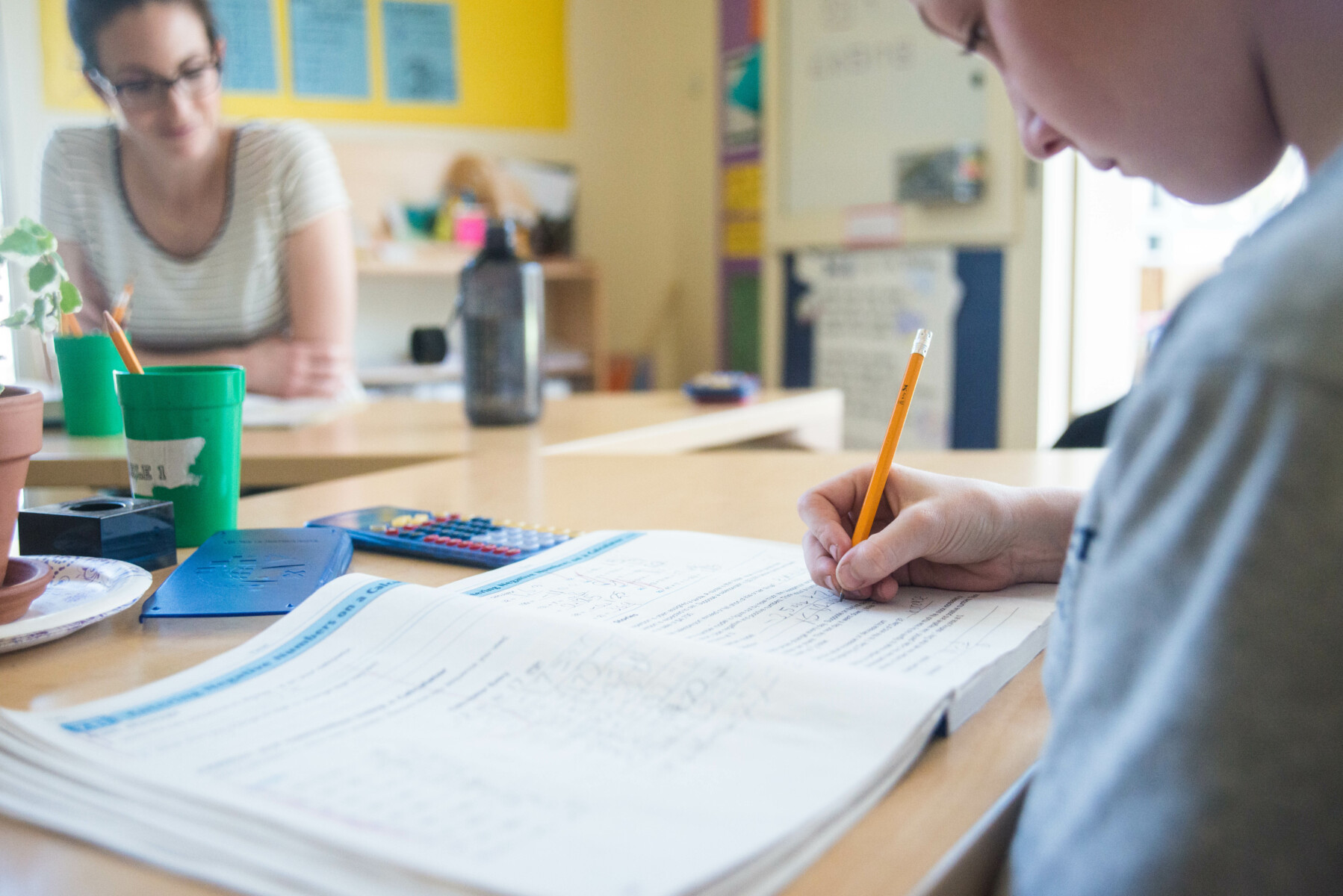
Our Fourth Grade reading curriculum is designed to immerse students in a deeper exploration of literature, fostering a critical eye for detail and an ability to extract valuable information from texts. Emphasizing the development of inferential skills, students engage with themes and intricate characters, honing their ability to make meaningful connections in their reading. The curriculum includes an extensive exploration of history, guiding students in effective note-taking, summarization, and the adept utilization of various aspects of texts. With a focus on multiple points of view, students learn to take a stance supported by sound reasoning and evidence, further refining their cross-text synthesis. The joy of poetry is deepened by exploring complex narrative poetry and thematic analysis. Culminating the year, students engage in novel studies that seamlessly integrate the skills acquired throughout their elementary school journey.
In writing, our Fourth Grade curriculum extends the workshop model, building upon the foundations laid in previous years. Introducing students to more academic texts, we familiarize them with genres they will routinely encounter in their academic endeavors—thesis-driven persuasive essays, literary essays, and research reports. The year begins with applying their understanding of reading realistic fiction to creating compelling narratives, and crafting believable characters with authentic struggles and motivations. The importance of factual reporting and evidence-supported arguments takes center stage in a dedicated unit on journalism. Bridging writing and research skills, students delve into the historical context of the American Revolution, collecting evidence to substantiate their understanding. A poetic journey unfolds as students study historical poets, finding inspiration in their works. Finally, students apply their essay writing skills to craft literary essays about books that resonate deeply with them, showcasing their growth as thoughtful writers across diverse genres.
Our Fourth Grade spelling program is tailored to each student’s unique needs, employing an individualized word study approach. Through a comprehensive assessment, students are grouped based on their spelling abilities, allowing for targeted instruction. In hands-on activities, students explore word sounds, spelling patterns, and meanings, fostering a robust understanding of conventional spelling. The ultimate goal is for students to apply this knowledge to enhance their everyday writing seamlessly.
The Fourth Grade vocabulary curriculum takes a deliberate approach to introducing new words. Through carefully selected student passages encompassing fiction and nonfiction, students encounter age-appropriate and intriguing words in diverse contexts. Participating in various activities, students not only expand their knowledge of these words but also develop an awareness of the nuanced relationships between them. Delving into idioms, metaphors, proverbs, and other wordplay, students gain a deeper understanding of vocabulary, enhancing their language proficiency.
Building on the foundation of cursive writing established in the previous year, our Fourth Grade handwriting curriculum strongly emphasizes refining and mastering neat and fluid cursive writing. Students receive explicit instruction and ample opportunities for practice, ensuring the development of legible and confident handwriting skills.
The Fourth Grade grammar curriculum is a progressive continuation of earlier grades, offering dedicated time for explicit instruction on standard conventions and continuous, repeated practice. Students engage with a multitude of sentences for the identification and correction of grammar concepts. The focus includes a thorough review and application of proper punctuation, capitalization, and parts of speech, fostering a solid command of grammatical principles.
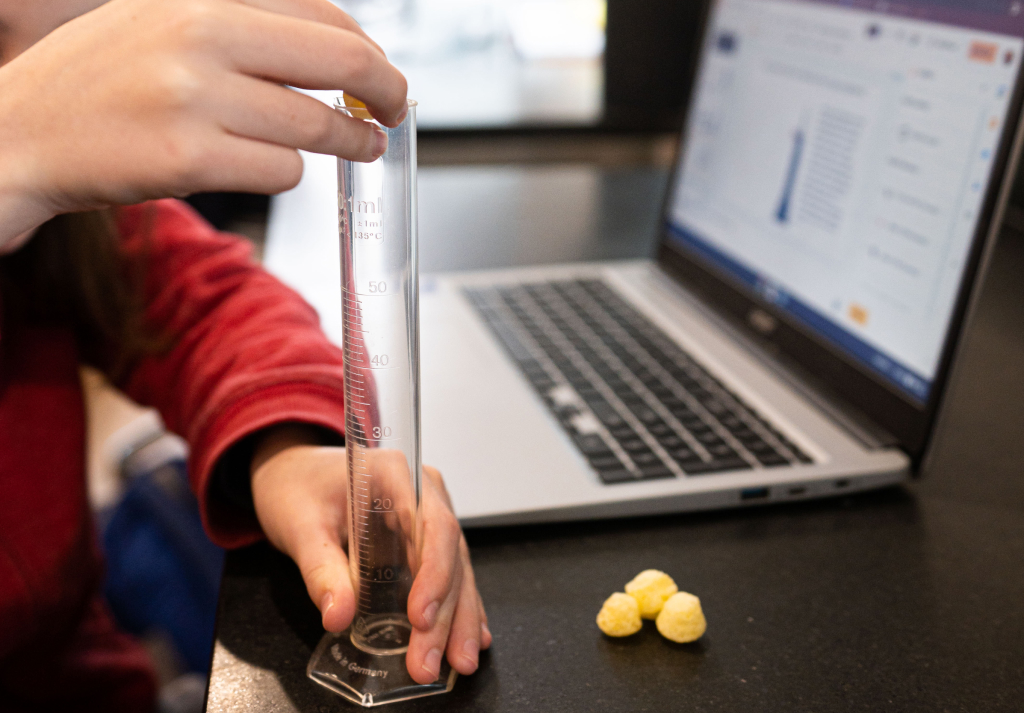
The Fourth Grade science curriculum is designed to significantly enhance problem solving skills and deepen students’ understanding of the scientific process, fostering an increased proficiency in engineering thinking. The exploration begins with an in depth study of the human body, delving into the intricacies of the skeletal and muscular systems. Building upon this foundational knowledge, students channel their engineering thinking to conceptualize, design, and construct a functional knee brace, applying their learning practically. Advancing in their scientific journey, students turn their attention to the fascinating realm of sound waves, explicitly delving into how dolphins communicate underwater.
This exploration enriches their understanding of marine life and prompts critical thinking about the various ways sound can traverse for effective communication. Applying this knowledge extends beyond the classroom, encouraging students to contemplate the broader implications of sound propagation in different environments. In the culminating segment of the curriculum, students immerse themselves in earth science, investigating the captivating processes of rock formation and the preservation of ancient life through fossils. This hands-on exploration of geological phenomena enhances their scientific understanding and instills a sense of wonder and curiosity about the Earth’s rich history.
The Fourth Grade social studies curriculum is intricately designed to impart historical knowledge and cultivate students’ empathy for diverse cultures, fostering a deep understanding of their role in shaping history and society. Embarking on the economic journey, students delve into the complexities of global trade, gaining insights into the significance of imports and exports and their direct impact on the local economy. This exploration equips students with a nuanced understanding of economic interdependencies and the interconnectedness of communities on a broader scale. The curriculum then immerses students in the pivotal chapters of American history, focusing specifically on the American Revolution. Through in-depth studies, students unravel the foundations of our nation and government.
In the final segment of their social studies exploration, students dive into Native American culture, particularly the Cherokee people. This study goes beyond historical facts, providing a holistic understanding of how the Cherokee culture has significantly shaped our modern lives. By appreciating the diverse perspectives embedded in our collective history, students develop a more profound awareness of their place in the broader narrative of human civilization. Our curriculum goes beyond rote memorization, aiming to instill a sense of empathy, cultural appreciation, and a deep connection to the historical roots that have shaped the world in which we live.
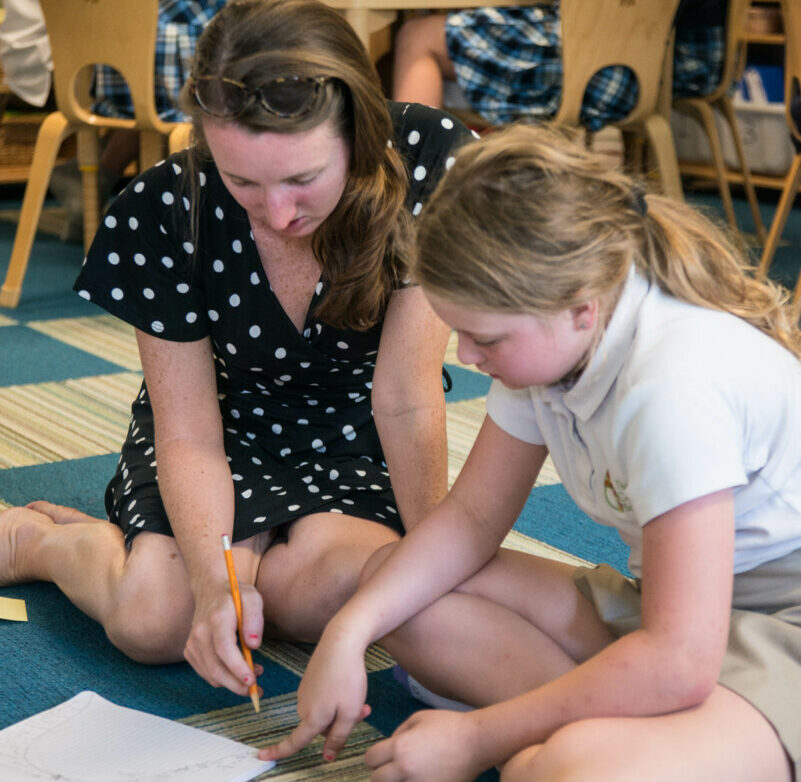
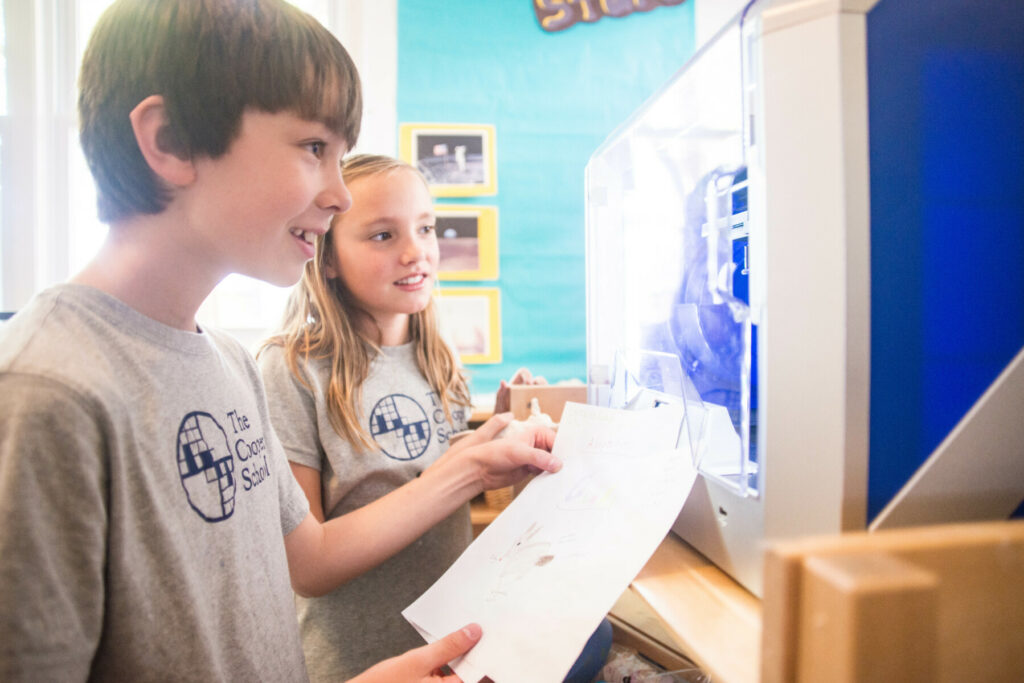
The Fourth Grade technology curriculum empowers students to harness the full potential of their computers with a heightened level of independence. While fostering a sense of responsibility, the utilization of technology is closely monitored to ensure its appropriate and purposeful use. Beyond basic computer skills, students are encouraged to delve deeper into research, honing their abilities to navigate digital resources effectively. The curriculum significantly emphasizes developing advanced skills, enabling students to express their thoughts and ideas proficiently in a digital format. Participation in Computer Science, including coding games and projects, further enhances students’ technological proficiency, seamlessly integrating technology into the learning process. These interactive experiences make learning more dynamic and instill a sense of digital citizenship, emphasizing the responsible and ethical use of technology in both academic and personal contexts.
The Journalism Writing project in the Fourth Grade serves as a dynamic platform for budding writers to delve into the intricacies of journalistic writing; with a keen focus on the ‘how’ and ‘why,’ students master the art of crafting quick, precise, and informative texts. In this immersive experience, they hone their ability to include pertinent details and relevant information while adopting diverse perspectives to offer thoughtful observations of their community. The comprehensive approach involves:
This unit is meticulously designed to instill in students the invaluable skills of organizing and synthesizing data through thorough research. Utilizing a spectrum of resources, including nonfiction and primary texts, teachers guide students to recognize diverse perspectives and investigate various pieces of information to substantiate specific claims or positions. As students delve into researching the American Revolution, they progressively gain independence and take ownership of particular subtopics. Transitioning from research to writing, students channel their acquired skills into crafting historical fiction stories tailored for specific audiences and groups. Notably, the unit emphasizes the critical understanding that history transcends memorizing dates and facts; it involves internalizing ideas, questioning sources, and discerning motives.
The Poetry Muse project serves as an enriching exploration of poetry analysis and production. Students undergo a comprehensive learning process to decipher explicit and implicit meanings in texts, making logical inferences to unveil the deeper themes within poems. Immersed in the study of various poets, students identify structural elements such as verses, line breaks, stanzas, rhythm, and rhyme, utilizing these elements to determine the thematic essence of a poem.
Each student selects a poet as their muse, conducting a detailed study of their work and discerning patterns across their poems. Challenged to channel their inspiration into creativity, students craft their poems, selecting their preferred medium of presentation and showcasing their poetic prowess and analytical depth.
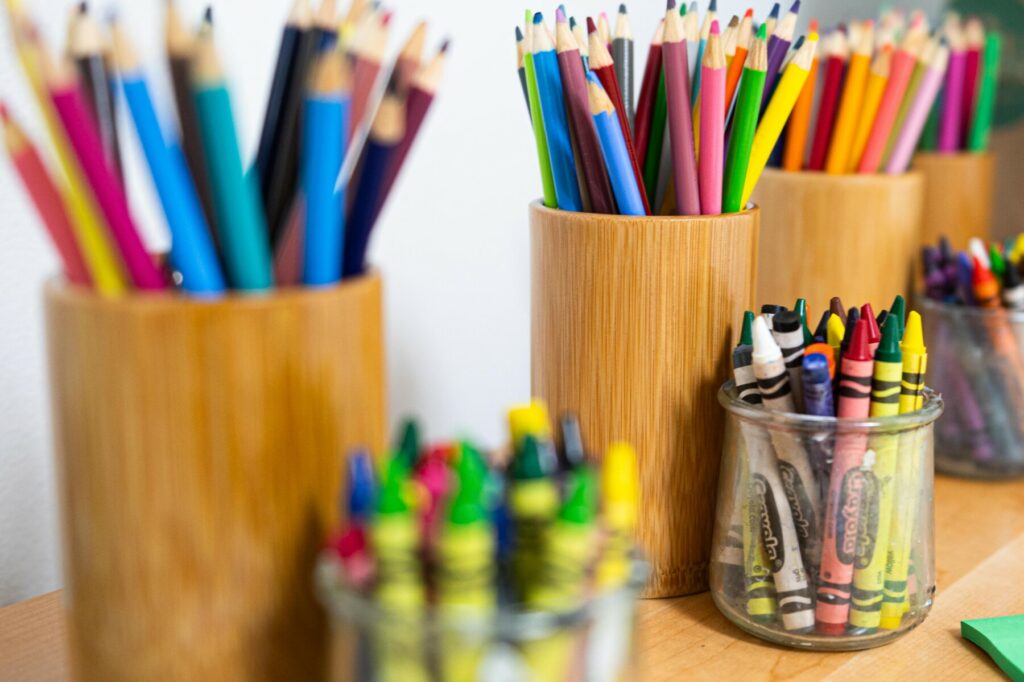
Fourth Grade artists learn to critique and develop the ability to question and explain peer/personal work in the art studio. Students maintain a personal sketchbook and can add their work to it during skill-builder lessons. Students continue to use the eight Studio Habits of Mind when working on their art projects.The eight Studio Habits of Mind are guidelines for artistic discovery and growth: develop craft, envision, express, stretch & explore, observe, reflect, engage & persist, and understand art worlds. Students discuss these and use them to reflect individually and as a class on what is learned. Students are encouraged to use the studio habits of mind in their artist statements for the art show to explain artistic growth. Fourth Graders create their constellations inspired by their Greek mythology unit.
The Fourth Grade PE class focuses on enhancing skills, introducing competitive games, and developing an understanding of personal fitness. The curriculum includes advanced team sports such as football, basketball, and volleyball, where students learn strategies, positions, and teamwork. Students also participate in track and field activities, focusing on improving personal bests rather than competing against each other. Moreover, they will learn about the importance of personal fitness, nutrition, and safety in physical activities.

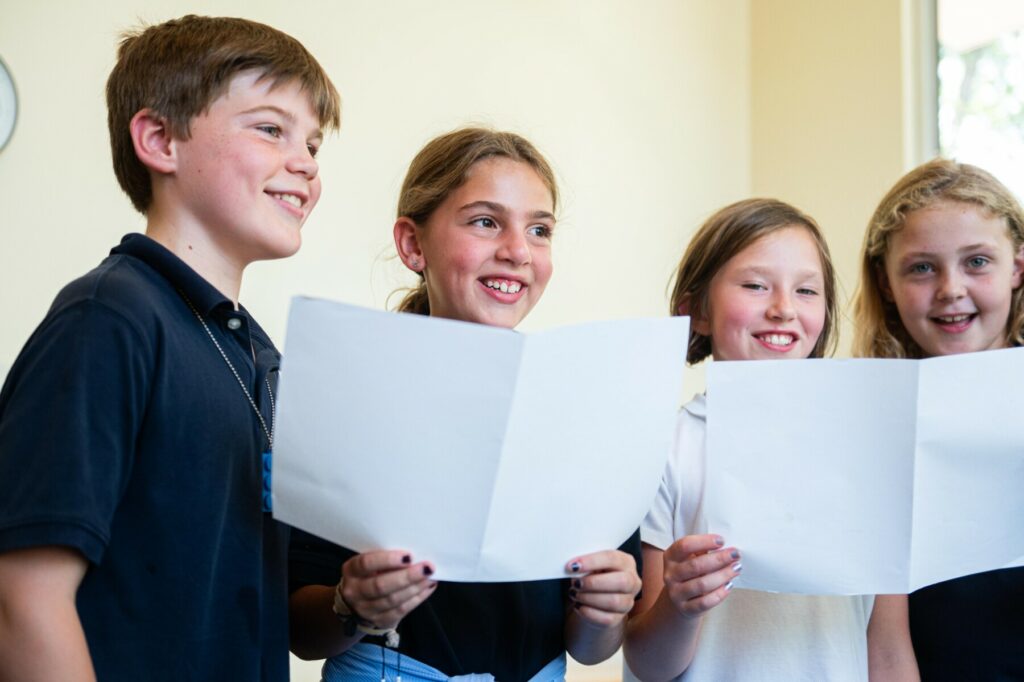
The Fourth Grade music class is an introduction to strings through the ukulele. Students learn chords, strums, and fingering techniques. The emphasis is on playing together as a group. Students learn how to play from a chart and off paper. By the end of the year, the students can sing and play in time together. In the Fourth Grade, musicians learn about the history of the ukulele and work together to perform a piece for their peers. Last year, they provided music while the Kindergarten class sang “The Flowers of Paradise”.
The third and Fourth Grade curriculum explores various music from around the world. Students learn foundational techniques of two and three-part singing and develop a richer understanding of ensemble performance.
Students refine postures and breathwork balancing effort and ease. We’ll continue to navigate how to mindfully handle all of life’s little lessons. Toward the end of the school year the students create a yoga sequence together that we will also practice throughout the rest of our time together. The class is 45 minutes and will incorporate breathwork, yoga poses, rest and meditation.

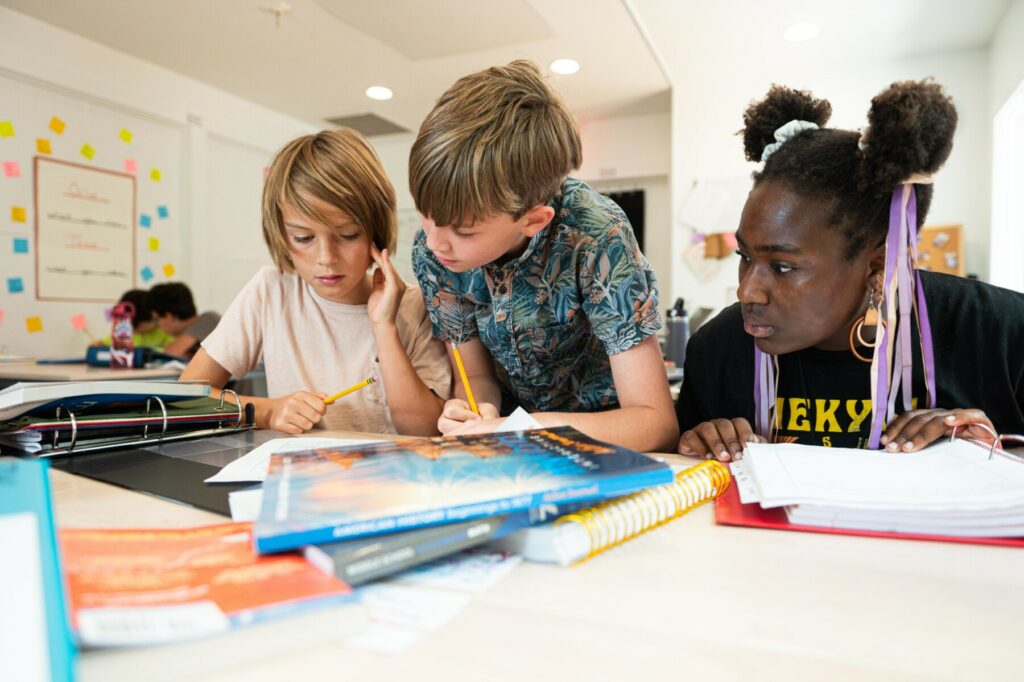
Students grow their confidence and expand their vocabulary in these years of Spanish. Language acquisition is still key, however, we also begin raising their social conscience and cultivating interest in Spanish culture. We integrate the Waldorf World Language Approach into lesson plans by leading students through a wide range of activities and giving them adequate room and opportunity to move their bodies, sing songs, create projects, and more. We engage the imagination through the senses: students will interact with natural elements like the weather when discussing “¿Qué hace el tiempo?”, they will create menus and tasteactual Spanish food. These types of real-world applications allow students to take ownership of their language skills and understand its greater purpose.